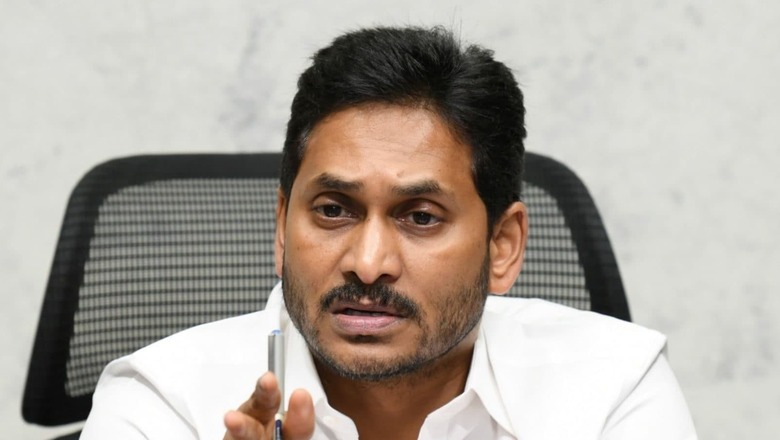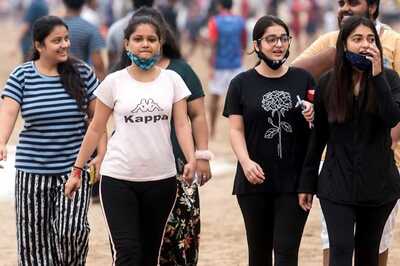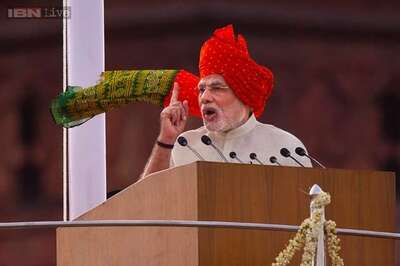
views
The recent incident involving a TDP spokesperson using foul language against the Andhra Pradesh chief minister YS Jagan Mohan Reddy has sparked a mass outrage across the state. The uncouth comments were nothing short of vulgar and are examples of how the opposition regularly indulges in dirty politics with complete disregard for public decency and political ethics.
The fact that such abusive language was even uttered especially on a public platform is reflective of the shameful levels the opposition is willing to stoop to, under the garb of political criticism. The said spokesperson of the beleaguered Telugu Desam Party repeated the work Bh**** again and again proving that it was no slip of tongue but a word spoken intentionally to abuse a much loved Chief Minister. At the same time, this abhorrent incident has brought to the forefront the larger question of what action should be taken against those who use derogatory language against an elected constitutional head of the state government.
This is because the use of profanity not only denigrates the individual reputation of the person who holds such a high office but also poses a threat to the law and order in the state. Given the elected nature and political stature of the office, such expletive language tends to incite enmity between people and creates an environment of divisive polarisation that is often characterised by violence, be it physical, verbal or both.
For instance, not long ago, when an inflammatory comment regarding rape was made against a women chief minister of Uttar Pradesh, it triggered a string of violent events, including damage to public property, arson and vandalism. Most recently, a controversial remark about slapping Maharashtra CM Uddhav Thackerey led to physical clashes between the supporters of two prominent political factions. These examples are indicative of how the use of objectionable language against elected political leaders can foment violence and destabilise law and order in the region.
Furthermore, when obscenities are directed at a person holding an important constitutional office, it inevitably erodes the public esteem of the office. It casts aspersions on the authority of the office, which in turn has a negative effect on the interactions and relationships that the public has with the office. When the sanctity of a constitutional office is allowed to be undermined in such a manner, the overall efficacy of our democratic institutions is severely impaired.
In a 2018 case involving certain insults hurled at Delhi Chief Minister Arvind Kejriwal, the Supreme Court recognised the importance of preserving the dignity of constitutional institutions. It held that the use of derogatory language against constitutional functionaries such as the CM is irresponsible and unacceptable and that the people must show respect for them under all circumstances.
Many advanced countries around the world have enacted laws that prohibit insults to persons holding important public offices. These include European countries such as Belgium, Denmark, France, Germany, Italy, Netherlands, Norway and Russia and Asian countries such as Singapore and Taiwan. Such countries penalise insults to public office holders with stricter punishment on the grounds of protecting public order and authority of the government.
On the other hand, in India, while the IPC prohibits insults against any person, it does not have any specific provisions that stipulate more stringent punishment for insults to persons holding the public office. The lack of a strict deterrent is a major factor that has contributed to a rise in the incidence of verbal abuse against holders of constitutional positions.
Despite the growing indecency of language used in the political sphere, this issue has garnered little to no attention across the country. With verbal abuse becoming the new normal in modern Indian politics and ethical standards of political criticism having gone for a toss, it is only a matter of time before respectable political debate is replaced by opportunistic mud-slinging.
It is even more concerning when senior political leaders such as the TDP President justify the use of obscenities and seek to legitimise defamatory language for gaining political mileage. Such instances make it increasingly evident that when unfettered political speech begins to trample on the dignity of elected constitutional functionaries, it is nothing but a sordid mockery of our democracy at the hands of experienced political goons.
If history is any indication, the need of the hour is to ensure that the use of derogatory language in the context of political discourse does not go unchecked. Taking a cue from other countries around the world, India needs to enact a standalone legislation, akin to the Contempt of Courts Act 1971, that specifically penalises any deliberate and malicious acts that are intended to outrage the dignity of constitutional functionaries. Just as one can criticize the Judgement but not the Judge, similarly criticism of a policy, style of governance or inaction by someone is a valid method of criticism. Outright resorting to abusive down-market words are no way protected even under the present law. A new law is imperative for preserving the sanctity of our democratic institutions from scurrilous, vilifying and unfounded attacks.
Gone are the days when debate was the offshoot of deep research and brilliant analysis. Let’s unitedly strive to bring back those days when criticism was considered constructive and for the benefit of society rather than allow debate to stoop to cheap levels of mudslinging and verbal abuse to draw attention to persons who have otherwise no ability or social standing. Unless we strive towards this goal we will never be able to weed out persons who are actually working for self aggrandisement and society will never progress.
(The views expressed in this article are those of the author and do not represent the stand of this publication.)
Read all the Latest News , Breaking News and IPL 2022 Live Updates here.




















Comments
0 comment